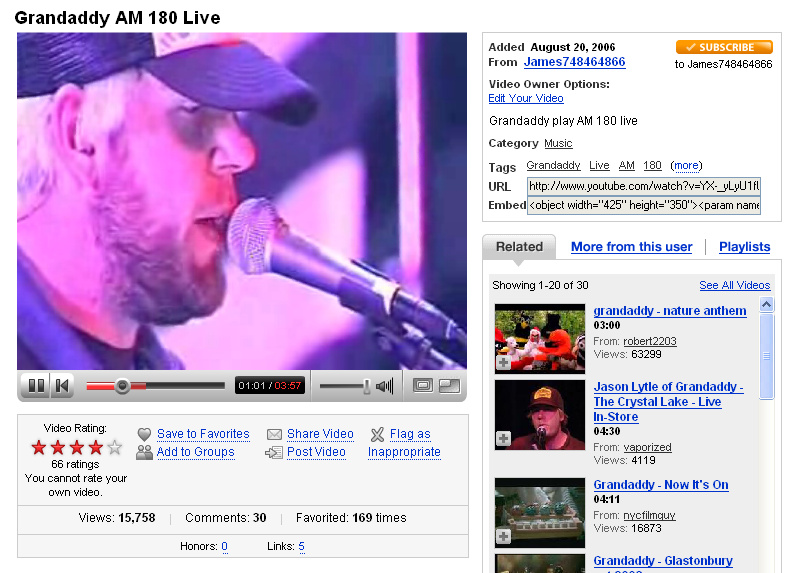TV is dead. Long live web TV!
How online content could threaten traditional TV

At today's launch of Bebo's Open Media platform, the question was raised wondering whether TV would become a redundant medium in the future, especially as more content becomes available online
People under the age of 25 are often referred to as 'the lost generation' when it comes to watching TV and buying music. They don't religiously follow their favourite shows in front of the telly, nor do they hit the shops on day one to buy the latest Arctic Monkeys CD.
Online, things are different. People in that age category are the most prolific users of social networking websites such as Bebo, Facebook, and MySpace. And on the web, people tune in to shows such as Kate Modern, currently with some 25 million viewers, and download music like never before.
So what impact is this new online behaviour likely to have on TV as we know it? We already know that music downloading has had a profound effect on CD sales. So is TV next?
Go with the flow
"TV will always be around," said Peter Cowley, managing director of digital media at Endemol UK. "But it will have to go with the flow as people change the ways they watch TV. As people get increased amounts of storage space on their computers, and with faster broadband technologies such as WiMAX coming in the next few years, TV viewing will change dramatically."
"You can't dictate when and where people should watch TV anymore," agreed Richard Cohen, commercial director of Premium TV, one of the launch partners of Bebo's Open Media platform. "Letting people watch their favourite shows in their own environment, at a time convenient to them, is key."
A different kind of content is also needed, according to Cowley. "It's not about watching 30 minutes of linear programming anymore - it's about engaging viewers to interact.
Sign up for breaking news, reviews, opinion, top tech deals, and more.
"People want to see more behind-the-scenes stuff featuring their favourite artists and celebrities, the kind of programming that wouldn't make it past the editing room," Cowley said. "That kind of content will be spread virally between fans in no-time."
Staying relevant to viewers
Relevant content is the key thing, agreed Casey Harwood, senior vice president of digital media at Turner Europe. "TV is not dead as long as it's entertaining. We have to continue to make big, mainstream shows, but also more niche programming targeted to online audiences."
"It's all about offering content in the right places, where people already are. If you're on a news website, it would make sense to access your favourite [news] shows from there. That's what content providers have to wake up to," Harwood said.
Jane Weedon, of BBC New Media, said that spreading content over multiple internet channels is going to be beneficial for all parties. "Making our shows accessible on websites including YouTube and Bebo means we get more viewers, and it becomes easier for people to access high-quality BBC shows."
Weedon confirmed that the BBC's iPlayer application would be fully launched by Christmas. A full version of the on-demand player will also be available on Bebo, offering shows such as Strictly Come Dancing and The Mighty Boosh.